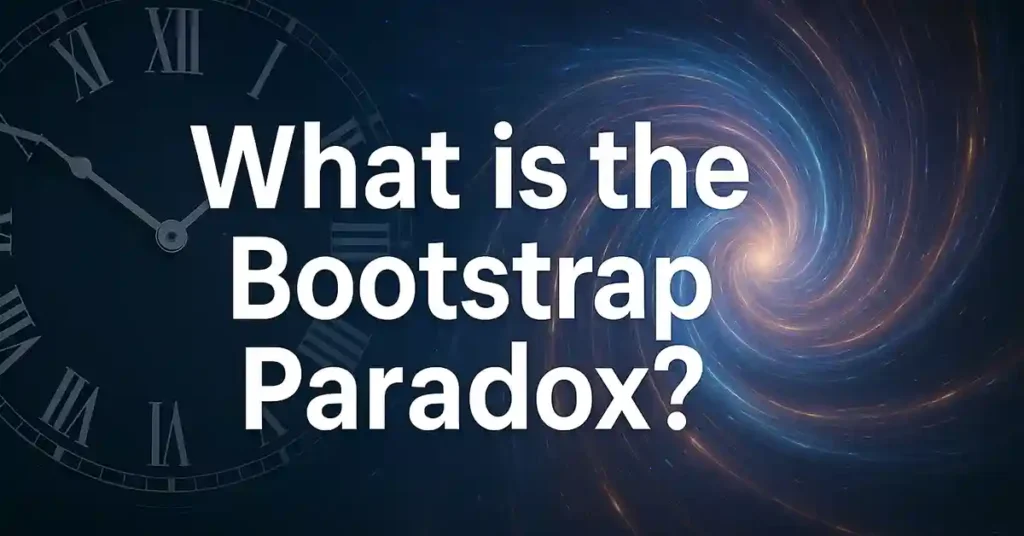Introduction
Time travel has captivated our collective imagination for centuries. From classic science fiction tales to cutting-edge theoretical physics, the prospect of journeying across time holds endless intrigue. One of the most puzzling concepts in these discussions is the bootstrap paradox. But what is the bootstrap paradox, and why is it such an enigma?
Understanding the Bootstrap Paradox
The bootstrap paradox occurs when an object, piece of information, or event seems to emerge from nowhere, having no true origin. The term “bootstrap” alludes to the classic phrase about “pulling yourself up by your bootstraps”—an impossible act symbolizing the paradox of something creating itself.
Example Scenario
Imagine a famous composer who receives sheet music from an unknown source. He plays this music, gains fame, and eventually goes back in time to give the composition to his younger self. The question becomes: Who actually created the composition in the first place? In a bootstrap paradox, it appears without a concrete beginning, challenging our understanding of cause and effect.
The Role of Causality
Causality is the principle that every effect must have a distinct cause. Yet, bootstrap paradoxes can blur these lines, suggesting events loop back on themselves in a closed timelike curve.
Linear Causality: In a straightforward timeline, Event A triggers Event B, which triggers Event C, and so on.
Bootstrap Paradox Causality: The “trigger” for an event seems to come from the future, erasing its original cause and creating a self-perpetuating loop.
This paradoxical cycle makes us question whether the universe has safeguards preventing such loops—or if time travel would fundamentally alter the flow of cause and effect.

Philosophical Implications
Beyond physics, the bootstrap paradox raises profound philosophical debates about determinism and free will. If certain actions or events are preordained in a closed loop, can humans truly exercise free will? Or are we merely actors playing out an inevitable script?
Additionally, questions arise about whether knowledge can exist without an origin. If information perpetually cycles through time, does it undermine the concept of intellectual property and creation?
Conclusion
Whether you’re delving into speculative fiction or studying advanced theories of space-time, the bootstrap paradox offers a captivating look into the possible twists and turns of temporal travel. It challenges the bedrock of causality, provoking profound questions about creation, existence, and the malleability of time itself.
So, what is the bootstrap paradox ultimately? It’s a puzzle that defies easy answers, compelling us to rethink our assumptions about how reality operates. One thing is certain: as long as we remain enthralled by the idea of time travel, the bootstrap paradox will continue to spark curiosity and debate.
